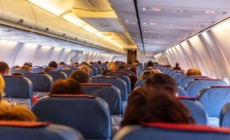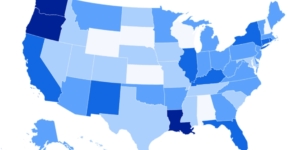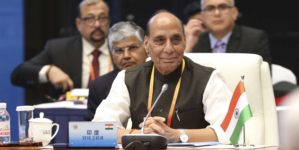-
New Hampshire woman accused of fatally stabbing her mother in the neck - 6 mins ago
-
Ravens Star Lamar Jackson Headlines 6 NFL QBs on a Contract Collision Course - 12 mins ago
-
Real Madrid vs. Juventus Betting Odds, Best Bets: Los Blancos Favored - 19 mins ago
-
Mom tries sneaky airline seat hack, plus Gen Z’s payment habit ‘annoys’ bartenders - 30 mins ago
-
Where is this mother of 2, and what happened to her? - 49 mins ago
-
2025 NASCAR Odds: Shane van Gisbergen Favorite For Chicago Street Race - 54 mins ago
-
Parkinson’s Disease: “Brake” May Halt Cell Death in Some Patients - 59 mins ago
-
Meta AI’s new chatbot raises privacy alarms - about 1 hour ago
-
Where is this mother of 2, and what happened to her? - 2 hours ago
-
Bucks to Waive Damian Lillard After Agreeing to Deal With Myles Turner - 2 hours ago
King Charles III made to wait for $60 million pay raise as Britons grapple with cost of living
King Charles III’s monarchy will not get a pay raise this year, but the Sovereign Grant will go up by more than 45 million pounds or around $60 million in the 2026-2027 year, accounts showed.
As many of his fellow Britons cope with a cost-of-living crisis, the grant which is paid for by the public and used for royal spending and upkeep of royal assets, remained at around 86 million pounds ($110 million) for the 2024-2025 year, latest annual figures from the Crown Estate showed. The grant will rise to around $170 million next year and remain stable for 2026-2027.
The increase of more than 53% came as the monarchy reported record offshore wind farm profits to the Crown Estate, which is a vast royal collection of land and property across the United Kingdom. This will be used primarily to fund the ongoing refurbishment of Buckingham Palace, according to a Sovereign Grant report released Tuesday.
Funded by the taxpayer, the Sovereign Grant is used to support the official duties of the monarch and other costs such as official travel, thousands of engagements, staff for working royals and the maintenance of occupied palaces.
It is based on a proportion of profits from the Crown Estate, an independently managed portfolio of assets, including luxury properties in central London, historical estates, rural land and the seabed around England, Wales and Northern Ireland worth around 15 billion pounds ($20.6 billion).
The assets are hereditary possessions held “in right of the Crown,” the profits of which are added to Britain’s Treasury. The grant is reviewed every five years, and is expected to next be reviewed through legislation in 2026-27 to keep funding for the royal family at an “appropriate” level.
Control of the estate was surrendered in 1760 by King George III in exchange for a percentage of the profits.
In addition, the king receives income via the Privy Purse from the Duchy of Lancaster, a landed estate, while William, the Prince of Wales, receives the net profits from the Duchy of Cornwall.
Separately, the royal family also received additional income of 21.5 million pounds ($29 million) from a record year of visitors to Buckingham Palace.
The monarchy’s gross share has soared since the Crown Estate clocked in a net revenue profit of 1.1 billion pounds ($1.5 billion) in 2024-25, which included “exceptional short-term uplift from Offshore Wind Leasing,” Dan Labbad, its chief executive, said in a separate report released Tuesday.
Part of the Sovereign Grant is being used to fund Buckingham Palace’s 10-year, 369 million pounds ($475 million) “reservicing,” which includes modernizing building services, new lifts and mechanical pipework. The monarchy has already spent 266.5 million pounds ($367 million) of the agreed servicing amount, the grant said.
The expenses also included more than 800 royal events with almost 100,000 guests, 539 full-time staff.
In February, Charles took delivery of two new helicopters to replace the existing 15-year-old helicopters “due to their unique capability to access remote regions of the U.K. that are not otherwise readily served,” the report said.
It added that the royal train, a favorite of Charles’ mother Queen Elizabeth II, will be decommissioned “following a thorough review into its use and value for money.”
News of the royal family’s soaring budget was met with criticism in some quarters of the U.K. where 4.5 million children, or around a third of the total population of kids, were in poverty, an increase of 100,000 from the previous year, according to government statistics published in March.
An estimated 62% people said their cost of living increased in May compared to April, according to the Opinions and Lifestyle Survey conducted by the U.K.’s Office for National Statistics. The survey reported that 92% of all people also said food shopping became more expensive in the same period.
“Half a billion could go a long way to relieving some of that poverty,” Graham Smith, the chief executive of the anti-monarchy campaign group, Republic told NBC News in a telephone interview Tuesday.
“That money is instead being spent on their personal lifestyles, helicopters and two dozen palatial homes. It’s just criminal,” he added.
Source link




























